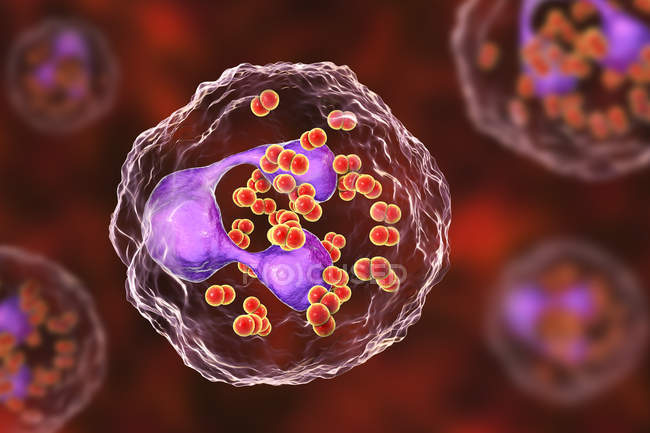Neutrophils Could Be Eradicated By Rod-Shaped Therapeutic Particles To Prevent Them From Causing Cytokine Storms In COVID-19 Immune Response
Source: Neutrophils And COVID-19 Jun 11, 2020 5 years, 6 months, 2 weeks, 4 days, 1 hour, 55 minutes ago
Neutrophils or a type of white blood cell may be central to the immune system overreaction that is the most common cause of death for COVID-19 patient. Now researchers from the University of Michigan have that found that rod-shaped particles can take them out of circulation and hence prevent the deadly immune responses.

The research findings are published in the medical journal:
Science Advances https://advances.sciencemag.org/content/6/24/eaba1474
Interestingly the No. 1 cause of death for COVID-19 patients echoes the way the 1918 influenza pandemic killed: their lungs fill with fluid and they essentially drown. This is called acute respiratory distress syndrome. But a new way of drawing immune cells out of the lungs might be able to prevent this outcome. This research is among the essential projects at University Of Michigan that have continued through the pandemic uninterrupted.
Acute respiratory distress syndrome or ARDS is a manifestation of a condition known as a cytokine storm, in which the immune system overreacts and begins attacking the person's own organs. In ARDS, out-of-control white blood cells break down lung tissue and cause fluid to build up. Helping to lead the charge is a type of white blood cell called the neutrophil, which makes up 60% to 70% of intruder-eating "phagocyte" cells in humans.
Dr Lola Eniola-Adefeso, University Diversity and Social Transformation Professor and a Professor of Chemical Engineering, who led the research said,
"They are like the Coast Guard; their main job is to make sure your boundaries are not breached."
She further explained that neutrophils are not specialized, which enables them to respond to many threats, But sometimes, that lack of specialization means they do not know when to quit.
Dr Eniola-Adefeso said, "As long as there are cues, neutrophils keep acting. In some instances, the feedback loop is broken, and that turns what is meant to be a good response into a bad response."
Significantly, one of their actions is to emit signaling molecules called cytokines that tell cells to break down barriers and let blood and fluid into a problem site. When that response turns bad, the neutrophils need to be stopped so that other cells can step in and repair the damage.
In the past, Dr Eniola-Adefeso's group showed that plastic micro particles injected into the blood of mice could distract neutrophils, diverting them away from areas of severe inflammation in their lungs. The neutrophils would grab the particle and head to the liver to dispose of it. Micro plastics used in this way eased ARDS in mice.
However any type of phagocyte might take up a sphere, which means a sphere-based therapy, is likely to affect other parts of the immune response.
But, it was already known that other phagocytes aren't fond of rod-shaped particles. Dr Eniola-Adefeso said they "get lazy" with the long wrapping process around a rod.
Dr Eniola-Adefeso added "We asked, do neutrophils also have a disdain
for eating rods. We found the complete opposite. They actually have a preference for eating rods."
Importantly that preference is useful for targeting neutrophils and leaving other white blood cells to do their jobs. They found that when they offered rods to different phagocytes, 80% of the neutrophils ate them, whereas only 5% to 10% of other phagocytes did. The comparisons included macrophages, another cell that eats intruders, and dendritic cells, which capture intruders and then show the other immune cells what to look for.
The research is currently exploring whether neutrophil-distracting particles can be made from medications rather than plastic. Dr Eniola-Adefeso is now working with the U-M Office of Technology Transfer to advance her delivery system toward clinical trials, in hopes that it may prove useful in the fight against COVID-19. U-M has applied for patent protection and has launched a start-up company, Asalyxa.
Dr Eniola-Adefeso is also a Professor of Biomedical Engineering and Professor of Macromolecular Science and Engineering.
For more about
Neutrophils, keep on logging to Thailand Medical News
